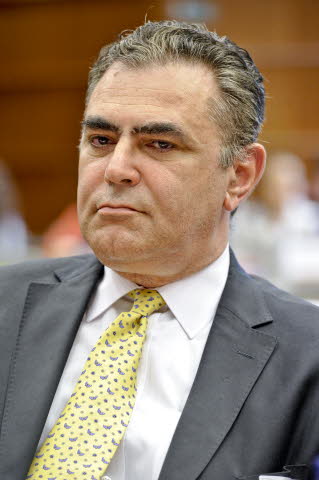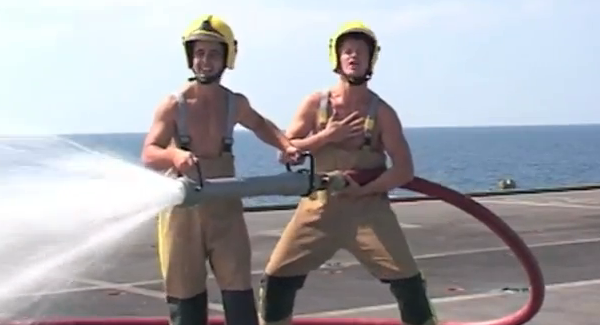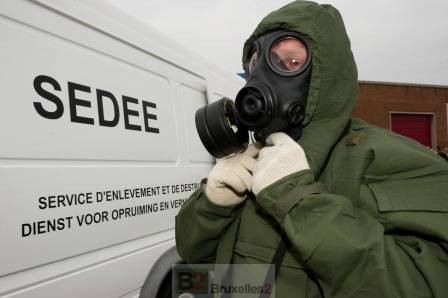The new ESDP mission, “Eusec Somalia”, takes shape
(BRUSSELS2) The French desire to promote a European mission to train Somali security forces is well known. After Pierre Lellouche, the Secretary of State for European Affairs, who had appealed to his European counterparts "to participate in the effort to train the Somali forces", during his visit to Djibouti, Hervé Morin, the Minister of Defence, repeated it again during his trip to the Indian Ocean. "The collapse of the country is the cause of piracy. We must also deal with the causes". To achieve "restoration"of the Somali state,"the Somali government must be given the means to rebuild and gradually reconstitute the elements ensuring the security and stability of the country", clarified the Minister. "We make this effort. What we hope is that other European countries will do so".
A dozen participating countries? Is it the effect of this appeal or, as a diplomat posted in Brussels remarks, " an awareness of the feasibility of the operation”, probably a bit of both. Still, today in Brussels, there is a rather favorable atmosphere for the implementation of this mission. " No one objected - continues this diplomat -. Of course, there are still a number of issues to be resolved, including the follow-up of trained soldiers, but we feel a slow movement ". In Gothenburg, at the end of September, there were thus three to four countries supporting the operation: in addition to Cyprus and Luxembourg which are already taking part in the French experiment - Cyprus by providing means, Luxembourg by financing the operation - Germany had expressed its support for the operation, as well as Spain, in a more timid way. Today there are around ten countries that more or less actively support this new ESDP mission. Poland and Finland are thus seriously studying their participation with the sending of trainers, Austria and Hungary also have a favorable prejudice but "haven't made a decision yet“As a diplomat confirmed to us. This could be called theeffect "Eufor Chad".
The Eusec Somalia mission, first outlines
Options discussed. In Brussels, the experts began, several weeks ago, to work seriously. An options paper was thus distributed to the various delegations in October (this is the second paper after the one distributed in July). The objective is to arrive at a political decision at the Council of Defense/Foreign Affairs Ministers at the end of November, approving a Crisis Management Concept (CMC), which will make it possible to launch the operational planning process. This should be pretty quick. Because thehas mission "Eusec Somalia" will be quite light in terms of staff: around 100-150 people.
A civilian mission, for training. The mission "assistance in security reform, including training of forces
somalia" would be a "civilian" mission in the European sense. This means that the planning and monitoring of the operation is carried out by the CPCC ("civilian headquarters" of the EU). It would aim, in the first place, at the training of the Somali soldiers. The number is not exactly fixed, but it would be a few thousand (between 2 and 5000 people). The training would be quite basic, lasting a few weeks (3 to 6 weeks), modeled on the French model, intended above all for "train group spirit, respect for discipline, basic tactical notions, evolution in unit, use of weapons". To which would be added a "human rights" and "international humanitarian law" section in the European spirit. It would take place in places located outside Somalia. Three countries have been designated for the moment: Djibouti, Tanzania , Uganda.
... with a component "payment" of soldiers. The European mission would not stop at training. But then would concern the payment of soldiers. “There is no point in training soldiers if then we cannot pay for it” assures a European soldier. "They will vanish and return to their homes or to the rebels" complements another. The mission therefore aims to ensure payment of salaries to preserve their presence in the Somali army. This poses several problems: controlling the payment chain (the experience acquired in the Eusec Congo operation could be useful), avoiding financial slippage and controlling the necessary budget (to avoid a tendency
Afghan-style inflation), have a political presentation that reconciles the different visions of the Member States in terms of military cooperation. Paying the armies of third countries out of the European Union budget may indeed seem shocking to certain countries or contrary to the "civilian" policy of the EU. One of the avenues followed could therefore be to support (financially and logistically) the African Union, which would be responsible for paying the money to the Somalis (which is already done for the soldiers of Amisom, the European budget partly paying African peacekeeping forces deployed in Somalia).
The American commitment
Diversified presence. What facilitates the European commitment and removes any reluctance is the very clear American commitment to Somalia. A very diversified commitment: training of soldiers, deliveries of light weapons and equipment to the army of the GFT, and financial contribution. At the end of June, thehe United States has already delivered at least 40 tons of weapons and ammunition to the forces of the Somali transitional government, for an amount around 10 million euros, according to un State Department representative. Americans help
also in force training somalia, via the Djiboutians, by "providing tents" and various materials. Logistical support is also provided to the Ugandans and Burundians who currently form the only AMISOM troops. We also know that it is an American company that trains Somali police officers in Jordan...
NB: The first Somali soldiers trained by France, bilaterally in Djibouti, arrived in Mogadishu on Tuesday from Djibouti in a private plane. According to Somali sources, the troops thus trained would number 800. This does not correspond to the figure provided by the French who speak of around 500 people trained in two stages (150 in August, 350 in October).


